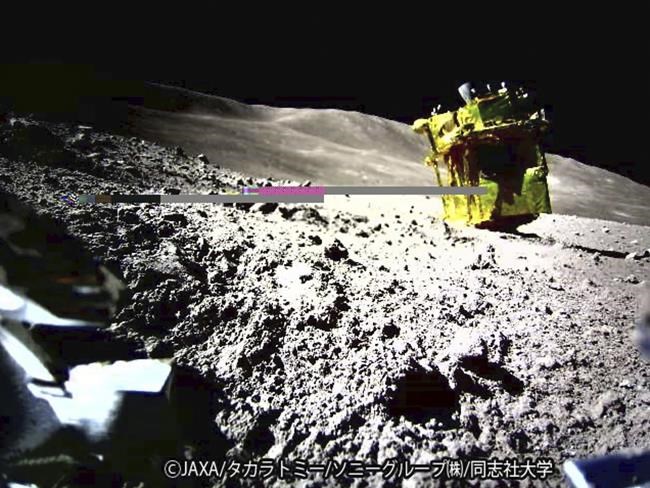
Japan’s moon lander survives a second weekslong lunar night, beating predictions
TOKYO (AP) — Japan’s first moon lander responded to a signal from Earth, suggesting it has survived a second freezing weekslong lunar night, Japan’s space agency said Monday.
JAXA called the signal, received late Sunday night, a “miracle” because the probe was not designed to survive the lunar night, when temperatures can fall to minus 170 degrees Celsius (minus 274 degrees Fahrenheit).
The craft, Smart Lander for Investigating Moon, or SLIM, made a “pinpoint” touchdown on Jan. 20, making Japan became the fifth country to successfully place a probe on the moon.
But the probe landed the wrong way up, with its solar panels initially unable to see the sun and had to be turned off within hours.
SLIM regained power on the eighth day after its landing, when it got the sun. For several days, SLIM collected geological data from moon rocks, before going back into hibernation in late January to wait out another lunar night.
JAXA said Sunday’s communication was kept short because it was still “lunar midday” and SLIM was at a very high temperature, about 100 Celsius (212 Fahrenheit). JAXA is now preparing to make contact again when the vehicle has cooled.
Scientists are hoping to find clues about the origin of the moon by the comparing mineral compositions of moon rocks and those of Earth.
Join the Conversation!
Want to share your thoughts, add context, or connect with others in your community?
You must be logged in to post a comment.


















